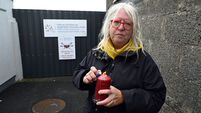Health is wealth for over-50s, study shows

The study, published by the Economic and Social Research Institute (ESRI), found that between 2006/7 and 2012/13, average net assets of Ireland’s over-50s fell by a massive 45%, from €565,000 to €306,000.
The main factor in the reduction of asset value was the property market crash, in which the value of owner-occupier housing fell from an average of €476,000 in 2006/7 to €224,000 in 2012/13.













